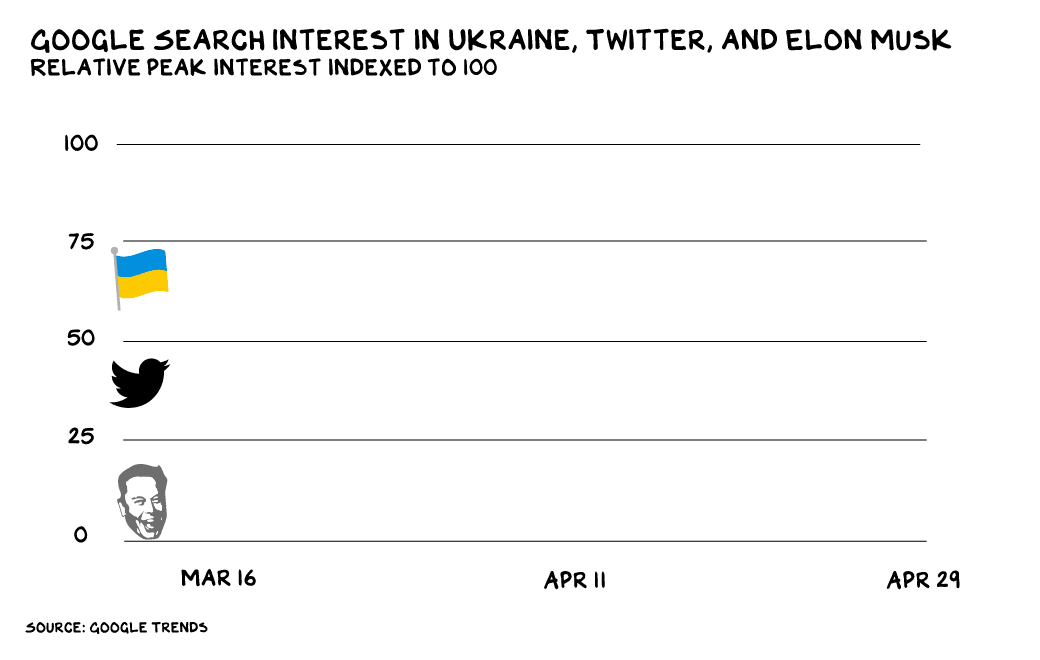The Attention Economy is Making Us Stupid

🌈 Abstract
The article discusses the "Attention Economy" and how it has become the driving force behind economic growth, with companies and individuals competing for people's attention. It also touches on other current events and issues, such as the potential overturning of Roe v. Wade, the ongoing war in Ukraine, and the economic recession.
🙋 Q&A
[01] The Attention Economy
1. What is the Attention Economy, and how does it drive economic growth?
- The Attention Economy refers to the phenomenon where the most valuable economic resource is people's attention, which is being captured and monetized by various companies and individuals.
- The article states that the average American spends 11 hours per day consuming media, and 40% of that time is spent on mobile devices. Billions of dollars and millions of person-years are spent capturing and monetizing this attention.
- The most successful players in the Attention Economy are described as "weapons of mass distraction" (WMDs), such as Meta and Google, which divert people's attention away from physical life to their apps and platforms.
- Individuals have also turned their attention-capture skills into wealth and power, with social media turning "suburban teenagers into 'influencers,' B-listers into millionaires, and the attention economy has turned game show hosts and comedy actors into presidents."
2. What are the negative impacts of the Attention Economy?
- The article suggests that the Attention Economy has proven to be "corrosive to the commonwealth," as it is "highly infectious" and has led to a "sclerotic lurching from single topic to single topic," making it difficult for people to follow multiple threads with nuance.
- It argues that the Attention Economy is making people "stupid" by causing them to "speed down our one-lane highway with no scenery or opposing traffic."
[02] Roe v. Wade and the Supreme Court
1. What is the potential impact of the Supreme Court overturning Roe v. Wade?
- The article states that the Supreme Court is poised to reverse the Roe v. Wade decision, which has protected the constitutional right to abortion for the past 50 years.
- It argues that this would be a "profoundly undemocratic movement," as less than a third of Americans want to see Roe reversed, and popular support for prohibiting abortions entirely remains at under 20%.
- The article suggests that this could lead to the Court reconsidering other rights not explicitly granted by the Constitution, such as gay marriage, interracial marriage, and the equal treatment of women.
2. How does the author's personal experience relate to the issue of abortion rights?
- The author shares a personal story about how his mother's access to family planning allowed him to attend college and start successful businesses, which in turn enabled him to have children.
- The article argues that the diminution of choice in reproductive rights can have significant impacts on individuals' lives and opportunities.
[03] The War in Ukraine and the Global Economy
1. How is the war in Ukraine impacting the global economy?
- The article states that the war in Ukraine, combined with the COVID-19 pandemic, has created a "perfect inflationary storm," with high inflation rates in the U.S. and Europe.
- It notes that the slide in stock prices, with roughly half the stocks in the Nasdaq down 50% from their 52-week highs, is comparable to the drawdowns seen in 2000 and 2008.
- The article suggests that the continued supply chain issues caused by China's COVID-19 policies and the war in Ukraine will likely contribute to further economic contraction.
2. How is the attention on the war in Ukraine shifting?
- The article observes that while the war in Ukraine initially captured significant attention, it now appears that "we are losing interest" in the ongoing conflict, even as Russia continues to kill thousands of civilians.
[04] The Rise of TikTok
1. How is TikTok disrupting the social media and streaming landscape?
- The article states that TikTok, owned by ByteDance, has become the most valuable startup in the world, with an estimated valuation of $360 billion, larger than Netflix, Twitter, Snap, Uber, and PayPal combined.
- It argues that TikTok is doing to Facebook and Netflix what those companies did to traditional media and cable TV, by becoming a "social media/streaming hybrid" that commands more engagement per user than Facebook and Instagram combined.
- The article highlights TikTok's ability to produce revenue that is "orders of magnitude greater than the other social media companies can generate," despite reducing its content budget to zero and still adding new users equal to the populations of Japan and the U.K.
2. What is the key to TikTok's success in the Attention Economy?
- The article suggests that the key to TikTok's success is its ability to capture attention through "short, addictive bites of entertainment," similar to the New York Times's acquisition of the quick, five-letter puzzle game Wordle.
- It describes TikTok's algorithm as a "supercollider of the TV Guide, TiVo, a remote control, and the brain, choosing between billions of programs (globally) in a fraction of a second."